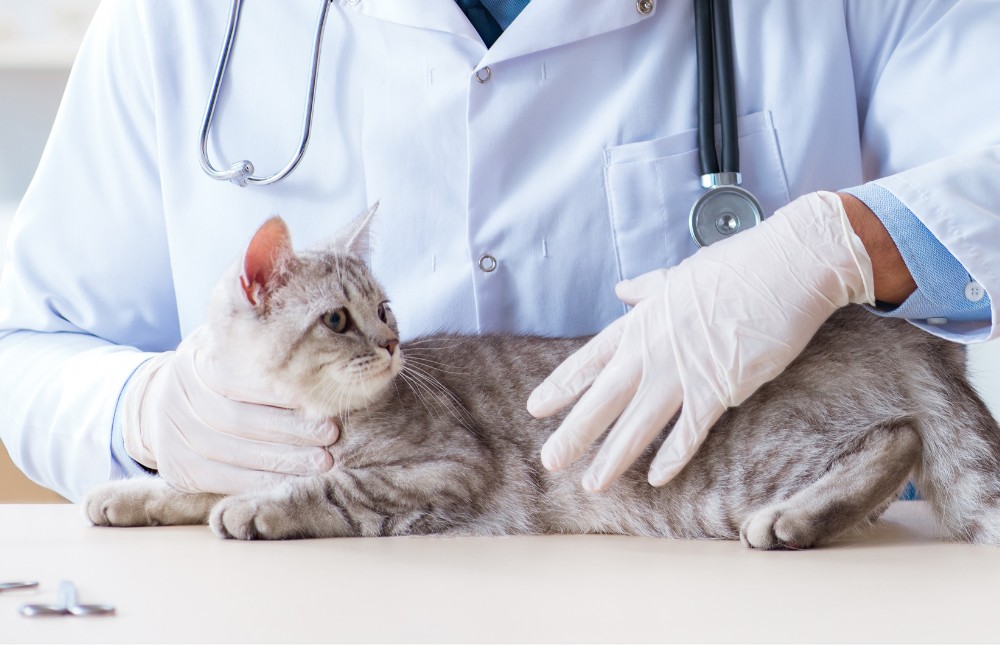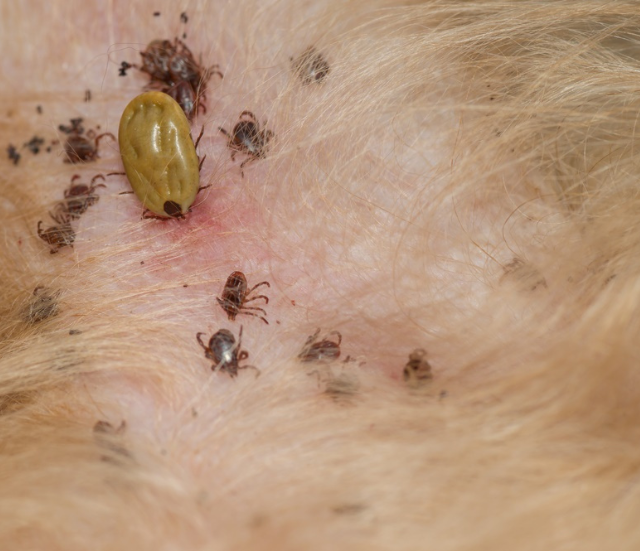Pet Parasite Prevention
Protecting your pet from parasites is crucial to their overall health and well-being. At Animal Hospital of Tiffin, we offer comprehensive parasitic prevention services designed to keep your pet safe from a wide range of harmful parasites, including fleas, ticks, heartworms, and intestinal worms. Our experienced veterinary team will work with you to create a personalized prevention plan that suits your pet’s lifestyle and specific needs.
The Importance of Pet Parasite Prevention
Parasites can cause a variety of health issues for pets, ranging from mild irritation to life-threatening diseases. Fleas, ticks, and other parasites are more than just a nuisance; they can transmit serious illnesses affecting your pet’s quality of life. Preventing these parasites is key to maintaining your pet’s health and ensuring they live a long, happy life.
Common Pet Parasites Include:
Cause skin irritation, allergic reactions, and in severe cases, anemia.
Can transmit diseases such as Lyme disease, Rocky Mountain spotted fever, and Ehrlichiosis.
Spread by mosquitoes, these parasites can lead to severe heart and lung damage and are often fatal if untreated.
Include roundworms, hookworms, and tapeworms, which can cause digestive issues, weight loss, and other health problems.
Comprehensive Flea and Tick Control
Fleas and ticks are some of the most common external parasites that affect pets. Controlling these parasites requires a consistent effort from both pet owners and veterinarians. Understanding the life cycle of these pests is essential for effective control.
Fleas can reproduce rapidly, with a single female flea laying up to 50 eggs per day. If left unchecked, a small flea problem can quickly escalate into a full-blown infestation. On the other hand, ticks are known for transmitting serious diseases that can affect your pet’s overall health.
Key Services for Flea and Tick Prevention:
- Topical Treatments: Applied directly to your pet’s skin to repel and kill fleas and ticks.
- Oral Medications: Systemic treatments that protect your pet from the inside out, ensuring comprehensive parasite prevention.
- Collars: Long-lasting protection against fleas and ticks, ideal for pets who spend a lot of time outdoors.
Heartworm Prevention and Detection
Heartworm disease is a serious and potentially fatal condition that primarily affects dogs but can also infect cats. It is transmitted by mosquitoes, which carry heartworm larvae. Once inside the pet, these larvae mature into adult worms that live in the heart and lungs, causing significant damage.
Heartworm Prevention Services:
- Monthly Preventative Medications: These oral or topical medications prevent heartworm larvae from developing into adult worms.
- Annual Heartworm Testing: Regular testing ensures that your pet remains heartworm-free and allows for early detection of an infection if one does occur.
Preventing Intestinal Worms
Intestinal worms are another common concern for pet owners. These parasites can cause a range of symptoms, from mild discomfort to severe health issues. Common intestinal worms include roundworms, hookworms, and tapeworms, all of which can be transmitted through various means, including contact with contaminated soil or feces.
Preventive Measures Include:
- Routine Deworming: Regular deworming treatments help protect your pet from intestinal worms.
- Fecal Exams: Regular testing of your pet’s stool can detect the presence of intestinal parasites, allowing for timely treatment.
Why Choose Animal Hospital of Tiffin for Pet Parasite Prevention?
Animal Hospital of Tiffin is committed to providing the highest level of care to ensure your pet’s health and safety. Our parasite prevention services offer:
Our Services Include:
Customized Prevention Plans
Tailored to your pet’s lifestyle and specific needs.
We use only the most reliable and safe parasite control products available.
From prevention to treatment, we are here to support your pet’s health.


